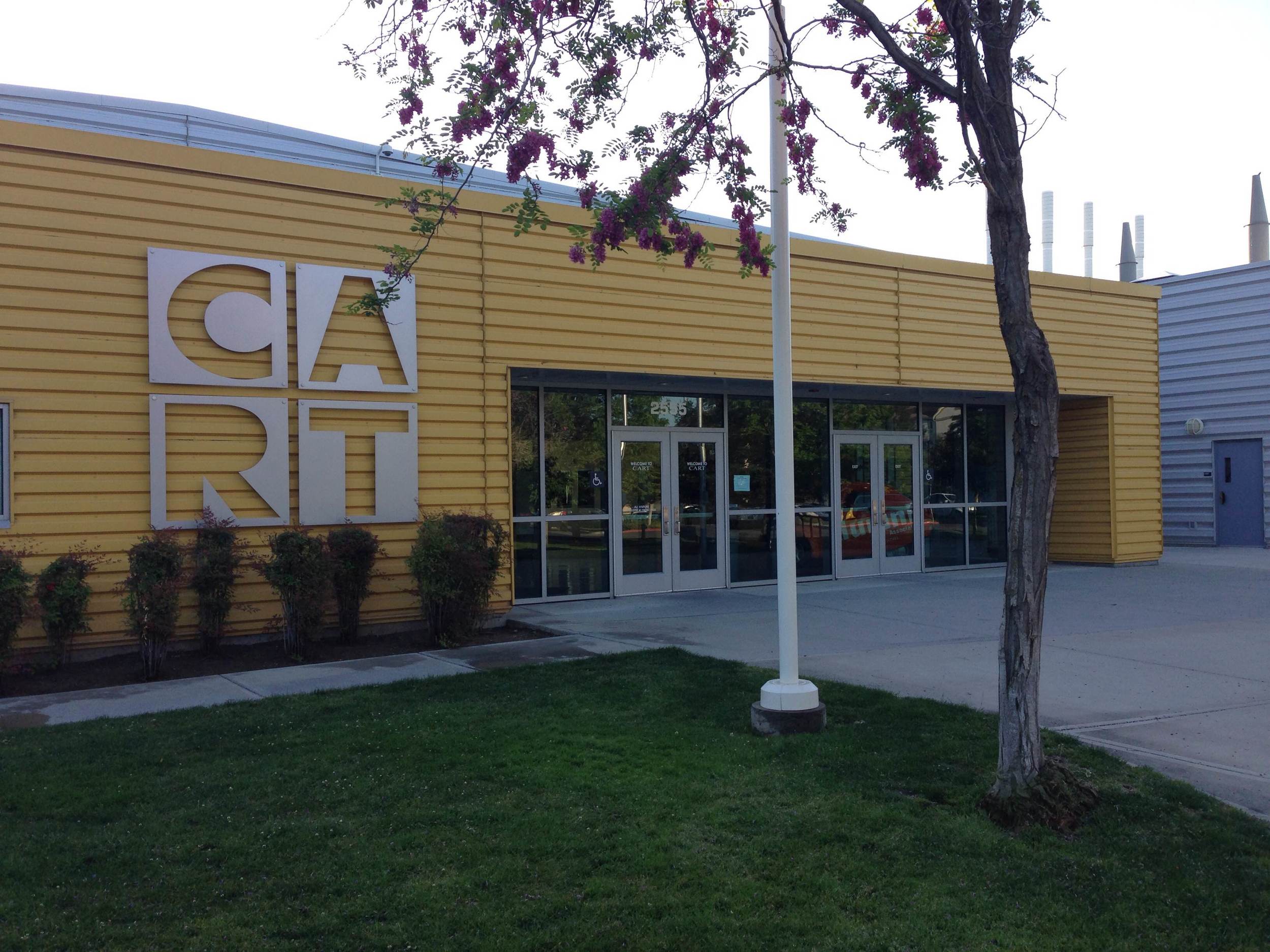Continuing the blog series from the road, I accompanied Zach Eikenberry of NEXT High School on an inspiration trip to California as he and his team prepare to launch NEXT High School in Greenville, SC. I had not heard of the Center for Advanced Research and Technology [CART] until Zach brought it to my attention - having visited the school, I am hopeful many more people will get to know this school and its innovative model, let’s get the word out!
We were greeted by Brenda Henkelmann upon entering the building. Brenda is the embodiment of that warm welcoming presence - treating all who enter with a smile and a clear joy for the work taking place at CART. The building has a large, high ceilinged atrium in the entry way, bright colors throughout, carpeted hallways and posters of inspirational leaders lining the walls. I felt at home, welcomed and that the expectations are high for those who enter. Classrooms are configured according to lab content area (more on the labs below), with windows onto the hallway - all supporting an open, collaborative atmosphere.
Here is a snapshot from the 'About Us' section on the CART website:
"The Center for Advanced Research and Technology (CART) is the most comprehensive, state-of-the-art education reform effort at the secondary level to date. The CART combines rigorous academics with technical, design, process, entrepreneurial, and critical thinking skills.
The 75,000 square foot CART facility, designed as a high performance business atmosphere, is organized around four career clusters. They are Professional Sciences,Engineering, Advanced Communications, and Global Economics. Within each cluster are several career-specific laboratories in which students complete industry-based projects and receive academic credit for advanced English, science, math, and technology."
Zach had visited before as he and CART are working on a partnership to bring the curricular and pedagogical model to NEXT High School when it opens in the fall of 2015. We met with Rick Watson, CEO and Beth Garoupa, Dean of Curriculum and Instruction to get me up to speed on the CART vision and context ahead of the student-led tour. Noelle was our student guide and a great ambassador for the school. CART is a unique educational model - partnering with 15 feeder schools from Fresno and Clovis school districts. Fresno and Clovis students attend CART at the same time. Students from both districts attend the 7:30-10:30am session and the 12:30-3:30pm session. Students attend their regular high school when they are not at CART and take classes such as foreign languages and physical education. The CART curriculum is organized around the four career clusters noted above and shaped via sixteen interdisciplinary labs. These labs are team taught by three teachers and class sizes can hold up to 90 or so students. Labs are as follows:
- Biomedicine
- Biotechnology
- Business and Finance
- Engineering and Product Development
- Environmental Science and Field Research
- Forensic Research and Biotechnology
- Hospitality and Event Management
- Interactive Game Design
- Law and Order and Policy
- Marketing and Advertising
- Multimedia - Digital Media andGraphic Design
- Multimedia - Digital Video Production and Broadcast
- Network Management and Computer Maintenance
- Psychology and Human Behavior
- Robotics and Electronics
- Web Application Development
[Click on the photo above to see additional lab photos]
The curriculum and pedagogy are based on five design principles - Cognition, Academics, Real-World, Technology, and Personalization - these principles guide every aspect of the learning process; they are reflected in expected student outcomes, curriculum, assessment practices, teaching modalities and school environment.
Zach wrapping his head around Macbeth and Robotics in the same classroom - the 'MacBot' :)
The teachers with whom we spoke underscored the importance of teacher collaboration and shared prep time. Typically teachers spend 5-6 hours per week in formal and informal collaborative prep time.
I am very much looking forward to visiting Greenville SC for the first time later this month for the NEXT High School's Industry Partner Summit. Greenville business and community leaders will gather to experience the CART project based learning methodology first hand and, in so doing, will identify up to 50 business and community project for NEXT High School students. Although the school will not open until 2015, our goal is for admitted students to begin work on these projects before the school launch. This will enable NEXT to embody its mission of learn by doing and to co-create the the school pedagogy and curriculum with students and the Greenville community. I will report back on the NEXT/CART summit at the end of this month. In the meantime, I will leave the final words of this blog posting to Noelle, our inspirational tour guide, thanks again Noelle for a great tour of CART!
“I love it here, it’s like home. I can be my nerdy, crazy self.”










